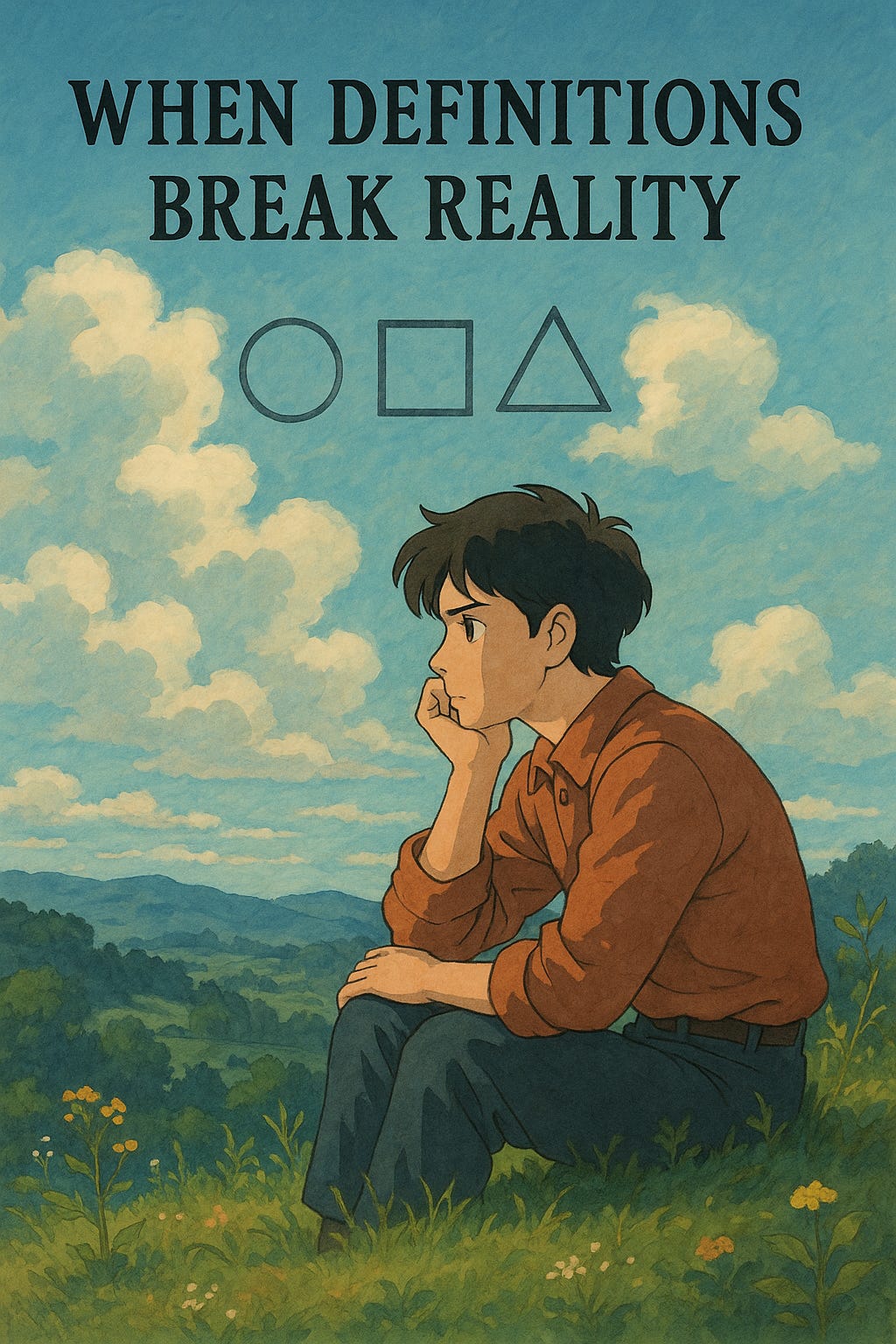When definitions break Reality
The day science defined “work,” and I began questioning everything.
While growing up in India, around 8th or 9th grade, I encountered a line in my physics textbook that quietly shook me. It defined work as “force multiplied by distance.”
This puzzled me. Deeply.
How could something richly human and emotionally loaded as “work” be compressed into a cold mechanical formula? I remember an inner jolt: All the early mornings I had woken up to study, the frantic scribbling of class notes, the hours spent trying to finish homework—weren’t those “work”? If so, how could it all be excluded by a definition with no room for effort, intention, or meaning?
Over time, I’ve recognized that people feel such jolts throughout life—moments when their intuitive understanding is abruptly replaced or challenged by something universally accepted, institutionally validated, and neatly rationalized. When this happens, you’re faced with a choice: either lean in and wrestle with the new framework, or retreat with the thought that you haven’t yet had the time or tools to form an opinion.
The latter path is more challenging for someone like me, because I’m naturally curious. I usually take the first route—read widely, dig deeper, and slowly find my way through the conceptual maze. Looking back now, with over 15 years of lived experience since that first brush with “work = force × distance,” I see how early education in physics quietly encourages a mechanistic worldview. Again, the equation isn’t “wrong”—but it subtly teaches that the world can be reduced to formulas, polished axioms, and universal laws. And yet, my own experience of life has rarely felt that neat.
The beauty of this mechanistic worldview is its clarity: If the universe runs on fundamental laws, one can reason from first principles and build skyscrapers of thought—or skyscrapers, literally. This is what the Western Renaissance brought forth. It was a revolt against the institutional authority of the Church, where once an all-powerful God sitting in the heavens was believed to govern the world through mysterious, unquestionable decrees. Through the radical inquiries of Galileo, Newton, and others, Western civilization discovered a way to break free from the dogma and forge a new path grounded in empirical truth.
India, however, walked a different path.
While it didn’t undergo a “scientific revolution” in the Western sense, it also never suffered from a civilizational conflict between faith and reason. In India, spiritual traditions were not based on belief in a prophet or a centralized doctrine but emerged from deeply rational and introspective inquiry into the nature of existence itself. The great Indian sages did not conclude that God was a distant cosmic ruler; they saw the Divine as the very essence of all existence. Reality itself was sacred.
This understanding led to a different kind of religiosity — the one that sees divinity not as external or authoritarian, but as immanent. That’s why, even today, Hindus worship the river (Mother Ganga), the sun (Surya Dev), knowledge (Saraswati), and even wealth (Lakshmi) as sacred. It’s not idolatry, but rather it’s intimacy with the cosmos. Everything is divine. There’s no division between the secular and the spiritual in the Indian mind; rather, everything is spiritual. And this isn’t the result of blind belief — rather it arises from a contemplative worldview that sees the sacred woven into every strand of daily life.
Closing Reflection:
For me, what began as teenage confusion over a physics formula has become a doorway into more profound questions: How much of our world has been reduced into abstractions that no longer carry our lived meanings? Are there older, perhaps wiser ways of knowing that invite us to see the sacred not as something apart from life but something humming within it?
As I now navigate both modern systems and ancient intuitions, I carry a quiet faith: that not all truths need to be quantifiable to be real. Some, like the efforts of a young student or the reverence for a river, are better understood not through equations, but through experience.


